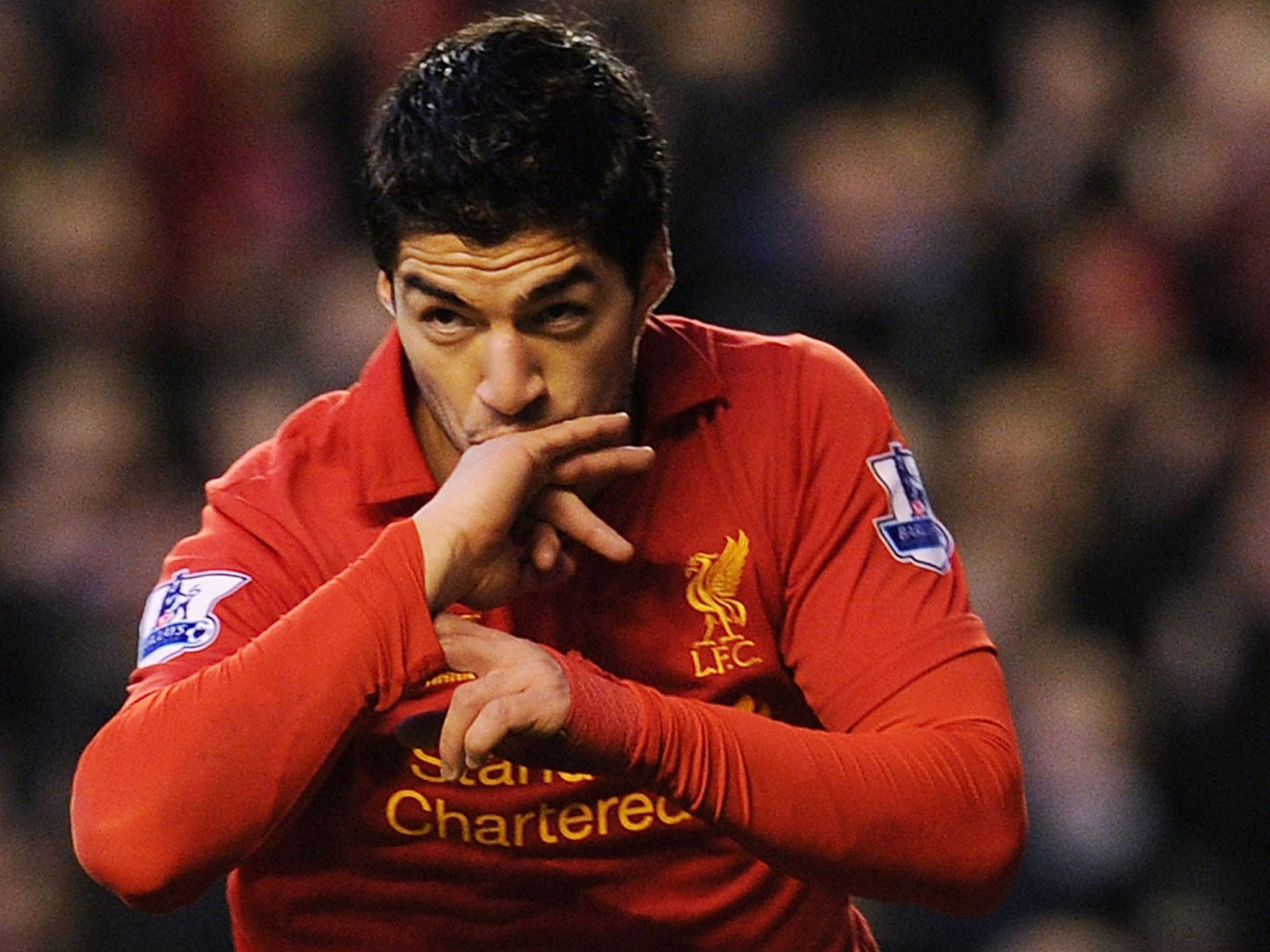In Spanish there's a phrase for what Suarez gets up to...

Given what happened over the past week, today's opposition and the controversy he generally attracts, many might expect Luis Suarez to take a rather northern European approach to all the negative attention at Old Trafford: keep his head down, do his job, try to make headlines for the right reasons.
That, however, isn't Suarez's background. On the contrary, someone who played a large part in the attacker's development has a very different suggestion. Daniel Enriquez is now the technical director of Nacional in Uruguay, and worked at the club from well before Suarez arrived there as a 14-year-old. It was Enriquez who had to tell the forward to change his ways after he bloodied a referee's nose, but now he adopts the opposite stance.
"I believe Luis Suarez needs to keep being himself, exactly like he is, because he's doing well," Enriquez tells The Independent on Sunday. "If he is going to be one of the best in the world, he needs to keep being what he is."
Were Suarez to undo Manchester United with the kind of moment that eliminated Mansfield Town from the FA Cup, it would feel all the sweeter for him – and not necessarily because of the unsavoury incident involving Patrice Evra which saw Suarez suspended for eight games for racial abuse. Rather for reasons much deeper.
Since that acrimonious day at Anfield on 15 October 2011, the term "cultural misunderstanding" has followed Suarez as a joke. But on another level the forward absolutely personifies another cultural difference that goes back much further. As all who knew him growing up attest, it is the key to comprehending why he gets involved in so much controversy without any apparent contrition – and why he will keep doing so.
When English settlers brought football to South America the sport seamlessly transported, but the Corinthian spirit with which it was formalised did not. Integrating the game into a different culture which was not so conditioned to respect authority, the locals from either side of the River Plate approached it differently.
Flair was favoured over physicality, innovation over order and mischief over fair play. This style was known as viveza criolla – "native cunning" – and became a fundamental building block of football in Argentina and Uruguay. The anthropologist Eduardo P Archetti likened it to the tango, and wrote that it involved a "capacity to cheat where necessary".
One of its core tenets is to "gain a psychological edge wherever and whenever possible" – all the more so if it is against your biggest rivals, as El Pais journalist Daniel Rosa explains: "There's an expression in Uruguay about how you want to win. If it's in the last minute and with a moment that enrages your opponent, all the better. That is viveza: knowing how to gain any advantage."
Pulling it off is admired as invention rather than abhorred as immoral. The ultimate example is Diego Maradona's "Hand of God" goal against England in 1986, but Uruguay has its own mythic moments – from Obdulio Varela unnerving Brazil in 1950 to the aggression of 1986.
This approach would have been ingrained in Suarez. It is reflected in the fact that, as Enriquez puts it, a handball or dive are barely worthy of mention in Uruguay. "It's not as controversial. Nothing would be said about the player. There would only be controversy that the officials didn't see it."
Many close to Suarez claim he is amazed by the amount of attention paid to such incidents. As far as he has learned, anything goes on the pitch – but it also stays on the pitch. He made that clear after one of his most infamous incidents, the bite on Otman Bakkal while at Ajax in 2010. "I always give 200 per cent in a match," he said. "He stood on my feet six or seven times – but that happens in football."
That attitude may explain some of Suarez's actions but it doesn't excuse them. In fact, many of those who know him say his specific mentality only exacerbates the problem. Three different people used variations of the phrase "real winner" about him – and not always positively. As his former manager at Groningen, Rob Jans, has said: "He cannot stand losing and sometimes he crosses the line."
"Always he wanted to win," Enriquez says. "He never wanted to lose and would take it very badly. In England, sometimes it seems a bit colder, more like a job, and that viveza isn't there. That's what we're like. We argue, we enjoy, we laugh and we cry all the same. It's part of our culture."
As is Suarez. Whether the consequences are odious or admirable depends on your point of view. Enriquez has his own: Suarez should stay just as he is.
Subscribe to Independent Premium to bookmark this article
Want to bookmark your favourite articles and stories to read or reference later? Start your Independent Premium subscription today.

Join our commenting forum
Join thought-provoking conversations, follow other Independent readers and see their replies